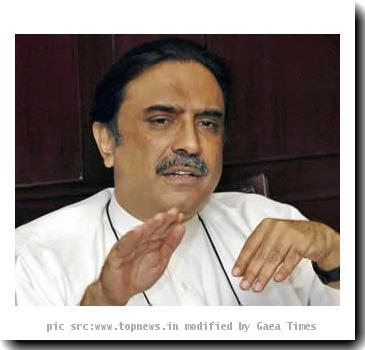Flooding worsens in Pakistan as UN chief flies in to boost relief effort
By Ashraf Khan, APSunday, August 15, 2010
UN chief flies in to Pakistan as crisis worsens
SUKKUR, Pakistan — U.N. Secretary-General Ban Ki-moon arrived in flood-ravaged Pakistan on Sunday to boost relief efforts as the 20 million people made homeless grew increasingly desperate.
Survivors fought over food being handed out from a relief vehicle close to the town of Sindh, ripping at each other’s clothes, and causing such chaos that the distribution had to be abandoned, according to an Associated Press reporter at the scene.
“The impatience of the people has deprived us from the little food that had come,” said Shaukat Ali, one of the flood victims waiting for food.
Waters 5-feet deep washed through Derra Allah Yar, a city of 300,000 people on the border of Sindh and Baluchistan provinces, said government official Salim Khoso. About 200,000 had fled the city.
“We have to feed them, but we don’t know how,” he said.
Authorities said more flood surges were coursing down the River Indus and other waterways in southern Sindh province, inundating hundreds of other villages.
About 1,500 people have died in the disaster and more than 7.9 million acres (3.2 million hectares) of cotton, sugar cane and wheat crops destroyed. The International Monetary Fund has warned of dire economic consequences in a country already reliant on foreign aid to keep its economy afloat and one key to the U.S.-led war against al-Qaida and the Taliban.
The United Nations said the rate of diarrheal disease continued to increase among survivors. Cholera, which can spread rapidly after floods and other disasters, had also been detected in the northwest, where the floods first hit more than two weeks ago after exceptionally heavy monsoon rains.
“We are here like beggars,” said Mukhtar Ali, a 45-year-old accountant living on the side of a highway along with thousands of other people. “The last food we received was a small packet of rice yesterday and 15 of us shared that.”
The United States has so far donated the most to the relief effort, at least $70 million, and has sent military helicopters to rescue stranded people and drop off food and water. Washington hopes the assistance will support a pivotal regional ally and help improve its image in the country — however marginally — as it seeks its support in the battle against militancy,
“So far, if anyone has practically given us maximum help, it is America,” Prime Minister Yousuf Raza Gilani said when a Pakistani reporter suggested the U.S. has done little since the crisis started.
Two additional U.S. Navy MH-53E Sea Dragon helicopters arrived in Pakistan on Saturday to support flood relief efforts, the U.S. State Department said. That brings to seven the total number of aircraft in Pakistan from the USS Peleliu, which is positioned in international waters in the Arabian Sea.
In the northwest of the country, U.S. missiles killed 12 people Saturday in a Pakistani tribal region filled with Islamist insurgents bent on pushing Western troops out of neighboring Afghanistan. The strike was the first in several weeks.
The Pakistani government’s reputation — already shaky to begin with — has suffered during the crisis, especially after the president decided to visit Europe as the crisis was unfolding. President Asif Ali Zardari has tried to make up for that public relations gaffe by meeting with flood victims in hard-hit areas since returning.
“We are with you. Pakistan is with you, and the people of Pakistan are with you,” he told survivors at a relief camp in the northwest’s Nowshera city Saturday. He promised the government would rebuild victims’ homes.
Tags: Asia, Asif Ali Zardari, Emergency Management, Floods, Municipal Governments, North America, Pakistan, South Asia, Sukkur, United States


